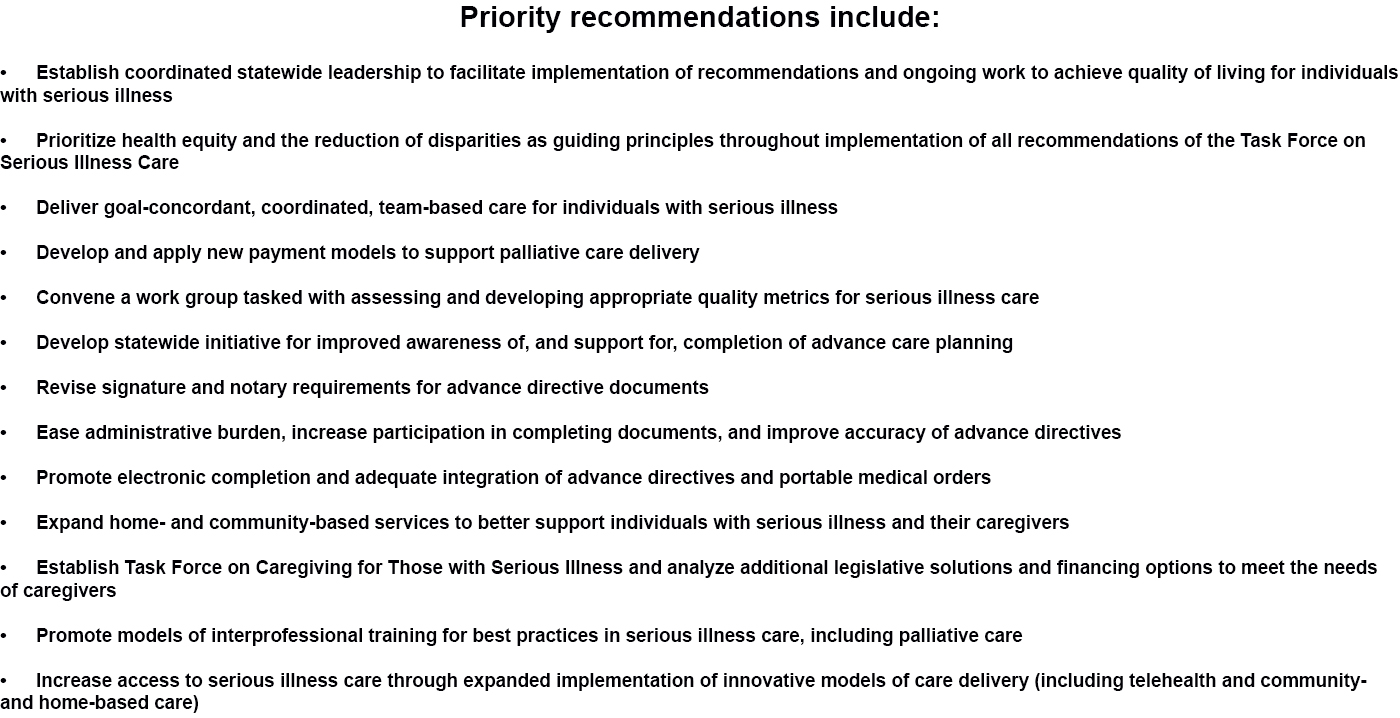

The North Carolina Institute of Medicine (NCIOM) has released a report with 30 recommendations for health care providers, state agencies, advocacy organizations, professional associations, and health care payers to support individuals with serious illness, their caregivers, and their communities.
The new report, “Improving Serious Illness Care in North Carolina,” provides policymakers, health providers and systems, and other stakeholders with a common vision and action steps to address the impacts of serious illness on North Carolinians. Concurrent with the release of the report, the North Carolina Medical Journal has published an issue dedicated to providing further context, including personal stories and policy analysis, about serious illness care in North Carolina.
President and CEO of the NCIOM, Dr. Adam Zolotor, explains, “Serious illness impacts people of all ages as patients, caregivers, social service providers, and health care professionals. But rates of serious illness rise as we age. With the over-65 population of North Carolina projected to increase 67% by the year 2036, we need to be better prepared to care for those who need it the most.”
The report summarizes the task force recommendations that were completed in January 2020. But as COVID-19 ravages our communities, serious illness care is touching a record number of North Carolinians and some recommendations call for immediate attention. For instance, task force recommendations concerning access to telehealth services and improving advance care planning are of dire importance in this pandemic.
Zolotor adds, “The Task Force on Serious Illness Care recognized that, with rising rates of many serious and chronic conditions in our state, it is crucially important to develop a system and
culture that aims to improve the quality of living for individuals with serious illness, their families, and their communities.”
The task force recommendations focus on four key areas:

Previous NCIOM task force reports have been roadmaps for legislative and regulatory action, as well as education and improvements in practice. Because living with a serious illness is one of the biggest challenges we face, The North Carolina Serious Illness Coalition evolved to implement the recommendations of this task force report and to develop statewide partnerships to educate and create some needed changes.
AARP North Carolina State President Dr. Catherine Sevier, one of the co-chairs of the Coalition, explains, “We have already begun engaging a broad range of stakeholders and their perspectives, including providers, consumers, policy advocates, industries, and others, to accelerate the solutions needed to achieve the desired vision for serious illness care.”
Over the past several months in response to COVID-19, the NC Serious Illness Coalition has pushed for solutions to help families develop advance directives and living wills, reducing barriers that prevent people from getting these legal documents in place. With a diverse membership of 120 individuals from many disciplines representing over 70 health care, patient advocacy, and serious illness-focused organizations, the Coalition is well suited to make continued progress addressing the challenges of caring for those with serious illnesses.
This NCIOM Task Force on Serious Illness Care was supported by the Duke Endowment, with additional support from AARP North Carolina, the NC Health Care Facilities Association, the Association for Home & Hospice Care of North Carolina, and the Carolinas Center.
The North Carolina Institute of Medicine (NCIOM) is an independent, quasi-state agency that was chartered by the North Carolina General Assembly in 1983 to provide balanced, nonpartisan information on issues of relevance to the health of North Carolina’s population. For more information, visit www.nciom.org.
# # #